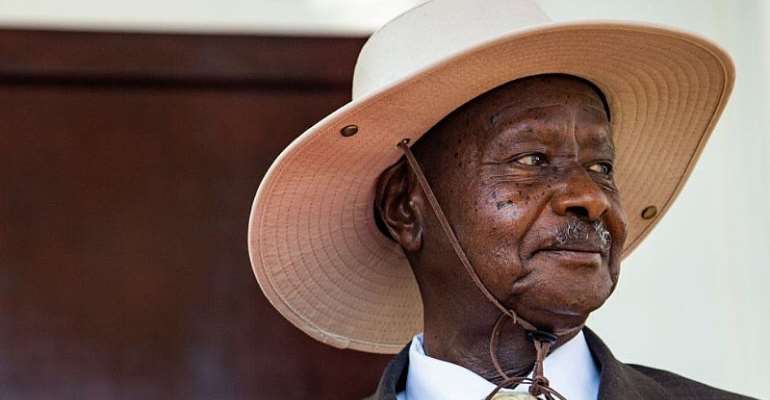Moral decline in Uganda is something worrying!

When I was a boy growing up in Kangulumira(Bugerere) and Kawempe, there were a set of values that guided the behaviour of every member of the community, and I’m sure it was the same everywhere in Uganda. We had values, such as hospitality, chastity before marriage, truth telling, respect for old people, covenant keeping, hard work, respect for neighbours, and good character.
However, Uganda has changed a lot, recently, going by what we see on televisions and social media. There are a lot of social ills that continue to beset our beautiful country. We are basically in a state of moral decline, and if nothing major is done to curb this problem, the future looks bleak. People under 18 years are supposed to be our future but their behaviour is appalling.
The moral repugnance that the country is experiencing is perhaps best captured by the way some old and young people talk in public. Up until just about now, for example, it was difficult to see a young or elder speaking vulgarly (‘okuwemula’ in Luganda) in public. At first, I thought it was something restricted to Dr. Stella Nyanzi because she was trying to showcase some of the contents in her degree, but I later found out that it’s a general problem.
If anybody wants to capture the audience nowadays, the best way is to either start with a big vulgar word, or an insult to someone. From Jennifer full figure (original names Jenifa Nakagubi ) to Tamale Mirundi senior and Junior, everyone starts live videos vulgarly. A couple of years ago, Shanita Namuyimbwa also known as Bad Black had a live video against Ritah Kagwa on Facebook –I was surprised that it had generated over 400 comments in just 10 minutes, something a religious leader, like Mufti Menk, cannot get despite being followed by millions of people.
There used to be a degree of discipline when talking in public but it’s all gone, and it has been left to a few Ugandans. Technological revolution after another explains the extraordinary change in our morals. The Internet have completely overhauled the ways in which people interact
My take is that, in the general scheme of things, the people who are to a large extent responsible for our moral decay, are the leaders. They need to ask themselves some difficult and soul-searching questions. There is a complete breakdown of leadership values and this, to a large extent, is largely attributed to leaders.
When president Museveni is talking in public, he calls whoever he disagrees with an ‘idiot’. According to John Kazoora, in his book, Betrayed By My leader’, Museveni’s favourite word is” idiot”. While in the bushes of Luwero, he constantly referred to UPC’s Chris Rwakasisi as an idiot.
While addressing the NRM caucus at Statehouse on the 11th of July 2011, he referred to Dr. Kiiza Besigye as an idiot. He also referred to one of the diplomats who had said something about him and was later revealed in the WikiLeaks, as an idiot.
Our culture has evolved in interesting ways to exhibit. Most important of all, however, is the difference in moral attitude between some Ugandans born before Museveni came to power and those born under Museveni’s regime. The sense that present culture is no longer motivated or even interested in ethics is perhaps most evident in regard to lying and deception. Most Ugandans, including present leaders, aren’t afraid of telling lies as long as they benefit from them.
Loosely, a lie is a statement that the speaker believes is false. Deception is a deliberate attempt to mislead others. Unlike lying, deception does require a theory of mind. The speaker must have a model of how the audience interprets her behaviour. If the receiver ignores the sender’s message, then he cannot be deceived.
Some people are pathological liars, meaning they can't stop spreading misinformation about themselves and others. The psychological reasons for why some people are this way is a bit of a mystery, but in the third edition of the Diagnostic and Statistical Manual of Mental Disorders, pathological lying is a disorder in its own right, as well as a symptom of personality disorders like psychopathy and narcissism. For instance, I watch in amazement when some NUPs continue spreading lies against Besigye in the name of selling Bobi, as if we are still in elections. I have also seen false reports announcing people dead yet they are still alive, and it’s sickening.
Then there are the voyeur and celebrity genres, which have made some liars the equivalent of rock stars and further feed the public curiosity about lying. One recent influential figure in this tradition was Bobi Wine who in 2017 lied that Museveni’s security men had busted one of his kidneys, and he ended up hospitalising himself in America.
Besigye, on the other hand, is somehow different. His emphasis on the morally redeeming qualities of business and politics, and, more specifically, financial independence was something I came to recognize as the defining ideology of a group of FDCs. Most of us between 30 and early 40s have only known Besigye as the only serious opposition leader because of his strict principles on good politics.
Granted, not all NRMs and NUPs are liars but that’s the image that has registered with a lot of people. This pattern of a few individuals telling most of the lies follows what is known as the Pareto principle, which is also known as "the law of the vital few." In short, this principle suggests that in a population, 20 percent of the people account for 80 percent of a behaviour. Liars in NUP follow a similar pattern.
Speaking carelessly in public, if pursued without regard to consequence, can prove ruinous not only to oneself, but also to other people and even to society itself. We must, therefore, work to create communities in which learning is emphasized over telling lies and insulting people in public.
